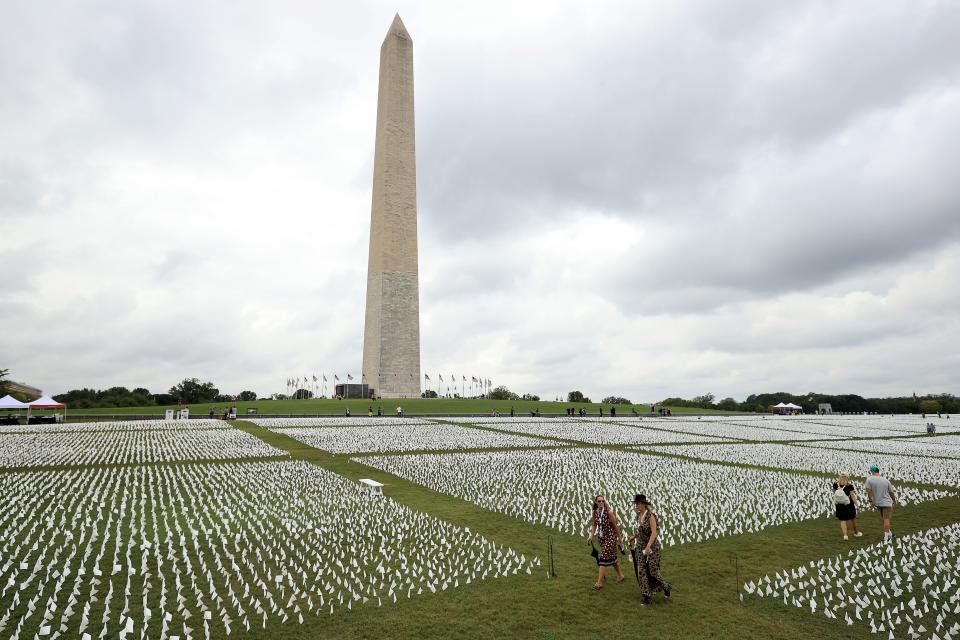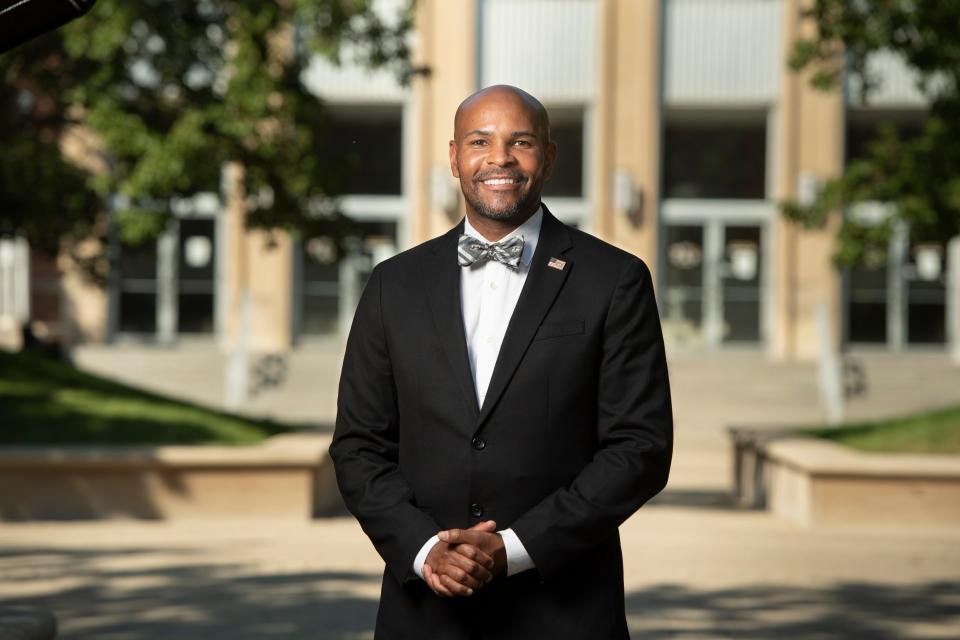5 lessons from COVID we must learn after losing 1 million people in America
The United States has reached the grimmest of milestones – 1 million dead from COVID-19.
Even if you believe half of those deaths are “from” versus “with” COVID, it would still represent more Americans dead than if a Sept. 11 attack had occurred every week since the pandemic began. And for the record, I and many other experts believe we’ve greatly underestimated versus overestimated deaths from the coronavirus.
No matter what “tribe” you’re in, I hope we can all pause and reflect on the gravity of all the parents, grandparents, siblings and friends lost. That many people shouldn’t die in modern times from an infectious disease.
How to honor these 1 million Americans
The easy path would be to write about everything that went wrong. From politics and communication, to inequities and the lack of public health infrastructure and preparedness, there’s no doubt we could’ve slowed, if not prevented, our rapid ascent to this horrible number.

However, truly honoring all those who’ve died means not only looking at the negatives, but also asking ourselves what we’ve learned and how we can advance health and health care delivery, such that we spare millions of others from a similar fate.
A huge loss: 1 million COVID deaths is an enormous number, something I never thought possible
It is often hard to see through the fog of war, but the greatest advances in health and health policy in our nation's history have in fact come during times of crisis:
►Blood transfusion therapy was revolutionized during World War I, tripling the survival rate.
►World War II ushered in the age of penicillin, saving the lives of 1 in 7 wounded United Kingdom soldiers.
►The Persian Gulf War brought substantial innovations in trauma care, translating into countless lives now saved from motor vehicle accidents and shootings.
The COVID-19 pandemic will be no exception.
Here are 5 lessons learned during the pandemic that will prevent millions more from dying in the future:
►Real time data collection. At the beginning of the pandemic, even the president didn’t know how many Americans were hospitalized or had died from COVID-19. Now almost anyone can look on their state health department’s website and see local numbers for the past 24 hours. COVID-19 forced us to acknowledge and address our outdated and underfunded data collection processes, and the public now sees real time reporting as the norm.
►Faster sharing of research. The speed at which the scientific community has responded – from both a research and a communication standpoint – is an underappreciated marvel of the pandemic. Previously, it often took years for promising research to be published, and a decade or more for science to be translated into clinical practice. Today's discoveries are published online and become new clinical paradigms in days to weeks versus years. If we can maintain this new era of information sharing and uptake, it will greatly reduce suffering and death from an array of public health and medical issues.
The concern after COVID: After COVID-19, our next big health care challenge will be drug-resistant infections
►Telehealth expansion. According to the Centers for Medicare and Medicaid Services, the peak of the pandemic saw 63 times the number of telehealth visits that occurred pre-pandemic. It’s not that telehealth was new; it has been around for decades. But COVID-19 forced patients, providers and health systems to adapt to a world where in-person visits simply weren’t feasible. Patients now will demand telehealth services moving forward. This will help not just rural communities, but also the single urban mother who couldn’t arrange child care to come in for her appointment. Or perhaps it’s the man who is reticent to come into an office setting for counseling but is willing to address mental health issues virtually.
►The power of public/private partnerships. The pandemic and Operation Warp Speed have shown that if you invest a sufficient amount of money, choose the right partners and give them the right resources, you can defy what even most scientists believe to be possible. As late as August 2020, many health experts still thought it would be a year or more before we had a safe and effective vaccine. By that winter we had two COVID-19 vaccines, and by spring 2021, a third. The development of immunizations, therapeutics and testing throughout the pandemic is truly the greatest global medical achievement of the past half a century. And it happened because of public-private partnerships. We now have hope for vaccines and cures for HIV, cancer and other diseases. Lives will be saved in the future because of the urgency and innovation created by lives lost during the pandemic.
Great Replacement Theory?: Try language of death wielded by opportunistic right-wing figures
►Use of pharmacies. The pandemic forced a reckoning regarding the lack of timely community access to physicians in the United States. There was simply no way for every patient who needed a test or vaccination to be able to see a physician to obtain one. Thanks to better use of pharmacists and pharmacy clinics (often staffed by nurse practitioners) patients can access testing, vaccinations and even treatment for COVID – at a pharmacy that’s 10 minutes away versus a traditional health facility that may be over an hour’s drive. This has helped address health inequities, and the pandemic is just a start. We simply must continue to look for more safe and innovative ways to extend access to underserved communities.
A bonus lesson learned is a much greater awareness of the importance of community health and public policy. Simply put, none of us can exist on this planet for long alone.
We're all in this together
Conversely, our own actions can’t indefinitely shield us from the actions of others. This is true whether you believe too many didn’t do enough to protect us from COVID19, or if you believe public mitigation measures overreached and caused economic, educational and emotional harm. The virus showed that we are all in this together. This is a lesson we’re still learning, but it's one we must embrace to save lives in the future.

As we reflect on the sorrow that comes with a million lives lost, let’s all vow to honor those deaths by turning them into something positive. History tells us we can save exponentially more lives than we’ve lost – if we learn from our battle with this virus and adapt.
Ships don’t typically change course during times of calm. It often takes a storm to force us to forge a new direction. We must create a better “normal,” where we’re better prepared for the next virus and where lessons from the lives we’ve lost save lives in the future.
Dr. Jerome Adams, a former U.S. surgeon general, is a distinguished professor and executive director of health equity initiatives at Purdue University. Follow him on Twitter: @JeromeAdamsMD
You can read diverse opinions from our Board of Contributors and other writers on the Opinion front page, on Twitter @usatodayopinion and in our daily Opinion newsletter. To respond to a column, submit a comment to letters@usatoday.com.
This article originally appeared on USA TODAY: After 1 million COVID deaths in America, here's what we must learn

